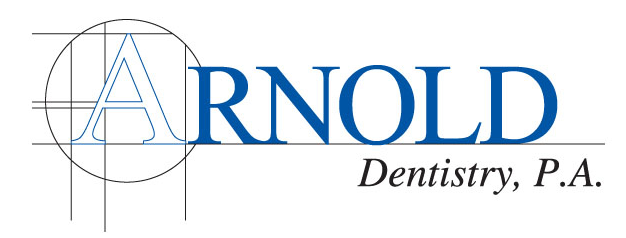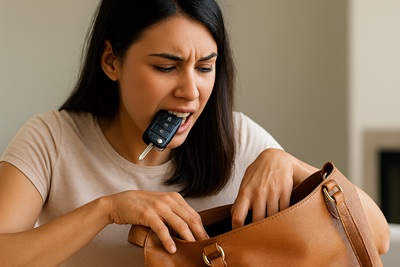Hidden Habits That Are Damaging Your Teeth (And What to Do Instead)
Thu, Aug 7th, 2025
We all know the basics of dental care: brush twice a day, floss regularly, and visit your dentist for cleanings. But what if you’re doing everything "right" and still noticing sensitivity, wear, or new dental issues?
You might be unknowingly damaging your teeth with everyday habits that seem harmless — or that no one ever told you to avoid.
At Arnold Dentistry, we believe prevention starts with awareness. Here are some of the most common hidden habits that could be causing harm — and how you can protect your smile for the long haul.
1. Overbrushing or Using a Hard-Bristled Toothbrush
Brushing is good — but brushing too hard isn’t better. In fact, aggressive brushing or using a hard-bristled brush can wear away enamel and irritate your gums over time.
This can lead to:
- Tooth sensitivity
- Gum recession
- Notches near the gumline (known as abrasion lesions)
What to do instead:
- Use a soft-bristled toothbrush
- Brush gently in small circles
- Let the bristles and toothpaste do the work — not your arm muscles
- Consider an electric toothbrush with a pressure sensor if you're unsure
2. Using Your Teeth as Tools
Opening a package, holding bobby pins, or even biting your nails — these might seem like no big deal in the moment. But over time, they can crack, chip, or wear down your teeth, especially the front ones.
Your teeth were made for chewing food — not tearing tags or cracking nutshells. Better choices:
- Use scissors, not your teeth, for cutting
- Keep nail clippers handy if you bite your nails when stressed
- If you grind your teeth or clench during tasks, talk to your dentist about a nightguard or stress management strategies
3. Snacking All Day Long
Frequent snacking means your teeth are constantly exposed to acid attacks, especially if the snacks are high in sugar or carbs. Even "healthy" choices like dried fruit, granola bars, or crackers can feed bacteria in your mouth that cause cavities.
The danger? Your mouth doesn't get a chance to neutralize those acids — leading to enamel breakdown and decay. Smarter strategies:
- Limit snacks to a few set times instead of grazing all day
- Choose tooth-friendly snacks like cheese, veggies, or nuts
- Rinse with water after eating, especially if brushing isn’t possible
- Chew sugar-free gum with xylitol to boost saliva and reduce bacteria
4. Grinding or Clenching (Often at Night)
Many people grind their teeth (bruxism) while sleeping — and don’t even know it until their dentist spots the signs: flattened teeth, enamel wear, or jaw tension.
Over time, this habit can lead to:
- Cracks or fractures
- Jaw pain and headaches
- TMJ issues (temporomandibular joint dysfunction)
What to do:
- Ask your dentist about a custom nightguard
- Try stress-reduction techniques like meditation or stretching before bed
- Be mindful during the day if you clench while working or concentrating
- Avoid chewing on pens or ice, which reinforces the clenching habit
5. Brushing Right After Acidic Foods or Drinks
If you’ve just had a glass of orange juice, soda, or wine, brushing your teeth immediately after can actually do more harm than good.
Why? Acidic foods temporarily soften enamel, and brushing while enamel is in that weakened state can wear it down.
What’s better:
- Wait at least 30 minutes after eating or drinking acidic items
- Rinse with water or drink plain water to help neutralize acids
- Use a straw when drinking acidic beverages to minimize contact with your teeth
6. Neglecting to Wear a Mouthguard for Sports
Even casual contact sports like basketball, soccer, or skating can result in unexpected hits to the face or mouth.
Skipping a mouthguard may save time, but a single injury can lead to:
- Chipped or lost teeth
- Lip or tongue injuries
- Expensive emergency dental care
- Invest in a custom-fit mouthguard for the best protection
- Even if it’s a low-contact sport, protect your smile if there's any risk of impact
7. Sipping on Sugary or Acidic Drinks Throughout the Day
Soda, energy drinks, sweetened coffee, or even lemon water — sipping on these throughout the day means prolonged acid exposure. It’s not just what you drink, but how often you drink it that matters.
What you can do:
- Limit acidic drinks to mealtimes only
- Drink water in between sips of anything sugary or acidic
- Don’t brush right away — rinse with water and wait 30 minutes before brushing
What If You’ve Already Done Some of These Things?
You’re not alone. Many of us have unintentionally picked up habits that impact our oral health. The good news? It’s never too late to make a change.
At Arnold Dentistry, we don’t just fix teeth—we help you understand the why behind your oral health. Whether you’re noticing enamel wear, sensitivity, or just want a professional opinion, we’re here to guide you.
The little things you do every day can have a big impact on your dental health—both good and bad. By bringing awareness to these sneaky habits and replacing them with healthier ones, you can protect your smile and avoid unnecessary dental work down the line.
📞 Need Help? Let’s Talk.
If you're concerned about enamel wear, sensitivity, or nighttime grinding, book a visit with Arnold Dentistry today. Together, we’ll create a plan that supports your healthiest smile.






